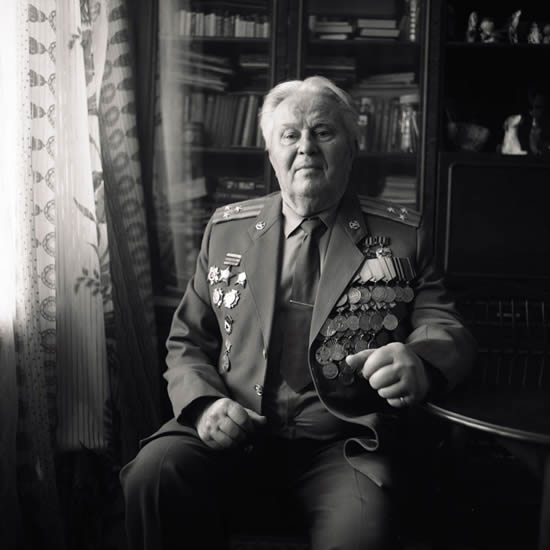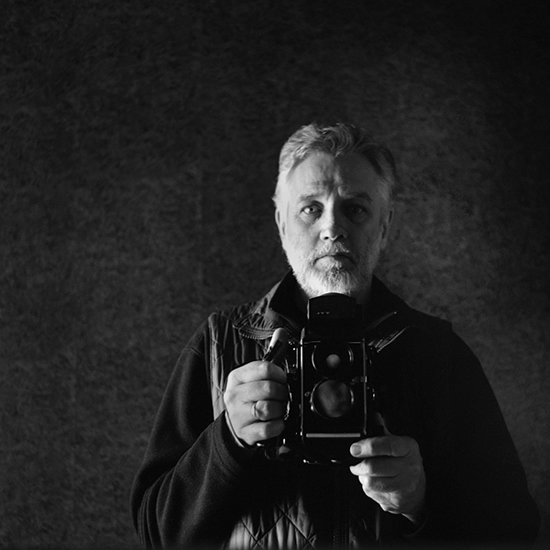 |
||||||
|
|
He had pulled his chair up to mine as close as he could. Gripping my leg with his strong hand, he spoke of surviving the battle of Stalingrad. When the memories became painful, his grip on my leg tightened. Over one million Russians had died in the battle, their corpses frozen on the ground around him. He survived the winter in a hole in the middle of a street, covered by a piece of metal. He and his aging wife offered me tea and cakes on theor finest china...MB Perm, a city of 600,000, is twenty-two hours by train east of Moscow at the foot of the Ural Mountains. It is located on the Kama River, a large, navigatble river flowing into the Volga and on to the Caspian Sea. Perm sits at the eastern edge of european Russia, the last stop before Siberia and Asian Russia. Because of the heavy military industries located there, including cannon and missile factories, until 30 years ago Perm was a closed city. Nobody got in, nobody got out. As recently as the early 1990’s, the residents were standing in line for hours to buy bread. Now, with the fall of the Soviet Union and the introduction of capitalism, (the very capitalism that the soviets had vowed to destroy) the citizens have access to almost every consumer product, for a price. However, just under this new facade of neon and strobe-lit commercialism is an old, unpainted and ill-maintained Russia. I was born in 1951, six years after the end of World War ll. The early fifties were a period of childhood calm for me. I knew nothing of war. Even though the Korean War was underway I knew nothing of it. Television was not yet in our home and I was too young to read the newspaper. But I recall when that changed, when my uncle, Jay, started talking to me about World War II. He had been in the Navy, aboard a destroyer. In retrospect, it seems like no one else in the family was interested in Jays’ war stories. But I was. We sat for hours at the kitchen table, he smoking and drinking coffee. I remember his face, usually bright and happy, turned dark and serious during his stories. He painted a grim account of war for me, about his friends dying and his hatred of the Germans. I was not told of the Holocaust, Jay probably thinking that talking of that was too much for me. His battles were on the sea, against a faceless enemy, at a distance. One day Jay showed up at my house with a brown paper grocery bag. He handed me the bag saying, "Here, this will help you remember." Jay explained that the bag contained a flag that he had taken from a German warship at the close of the war. He said that he carried the flag back home with him so that he would remember. The flag was a large, heavy, wool, bedspread-size Nazi flag. I thought I could smell the sea, the Germans, the war on the flag. The flag was red, black and white with a huge swatstika in the center. Jay didn’t speak much again about his war. Perhaps giving me the flag released something from him. I still have the flag today. But I came away wondering about war. Who were the Germans? What were they thinking? Why did they hate us? And what did they look like? In the 1960’s, I started hearing of war again. I was in grade school and this time the Catholic nuns spoke of something called a cold war. But I was confused. There were no battles, no bullets- just something called the bomb. We practised getting under our desks at school. That would save us from the bomb. My grandfather started ordering books from the government, books in brown craft paper covers about building fallout shelters, with words like megaton and survivability. We didn’t seem to be at war but it felt like we could be incinerated at any moment by these people, the Russians, and their bomb. What did they want? Who were they? What made them hate us? Why did they think like that? And again, what did they look like?
Images of the Russians and their missiles being paraded through Red Square each May Day became part of my history. Communism became the threat, with the Red Chinese and Red Russians joining together to threaten our lives. No invasion was coming, just missiles and bombs, from someone faceless, and far away. Only later in life did I come to realize that my view was the view given to me. I was looking through the prism that my government had provided. Before starting college in 1969, it occured to me that maybe these people didn’t hate us. Certainly, standing face to face with a Russian or a Chinese or a Vietnamese, certainly they were just like me. Maybe they weren’t thinking about killing me. Maybe by seeing their face, I could see that they had loves and hopes and dreams just like me. Maybe when they were isolated, seperated from the ideology of their government, they’d be just like me and my friends and my family. My memories from that time in my life connect with, and parallel today’s international mood. While the photographs I made in Russia present a look back into history, I’m showing the Russians as they are today, as contemporaries. The history of the cold war, with fear and hate being used by competing ideologies to control people is echoed in the tactics used by governments today.
Michael Brohm has rarely been seen without a camera in his hand, for as long as any of his friends can remember.. His work can be seen at: |
|||||








